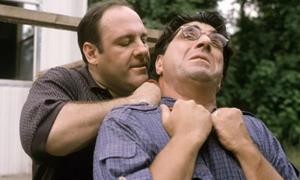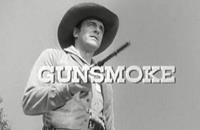The reviews are in, and they’re overwhelmingly raves, but nonetheless I’m going to forego Fargo. I’ve taken one too many walks on the vile side.
I know there’s an ongoing television drama renaissance. I see critics like Tim Goodman of The Hollywood Reporter and Eric Deggans of NPR rhapsodizing about the embarrassment of riches with which we’re being showered by HBO and Showtime, AMC, FX and Netflix, and wondering how the heck they’re going to find time to watch them all.
But lately it’s become difficult for me not to notice that the vast majority of these must-watch marvels are downbeat dramas about ugly crimes. I’m not so naïve as to deny depravity, but I’m just not eager to voluntarily wallow in it.
 Actually, I’m not the only critic to notice. Even though her preview of Fargo, the series, was glowing, Mary McNamara of the Los Angeles Times did note, by way of aside, that Fargo, the great 1996 Coen brothers film, touched themes and nerves that led to The Sopranos, the show that “...began TV's obsession with excavating human consciousness via the most troubled characters we could create.”
Actually, I’m not the only critic to notice. Even though her preview of Fargo, the series, was glowing, Mary McNamara of the Los Angeles Times did note, by way of aside, that Fargo, the great 1996 Coen brothers film, touched themes and nerves that led to The Sopranos, the show that “...began TV's obsession with excavating human consciousness via the most troubled characters we could create.”
In a less charitable Slate.com preview, Willa Paskin opined that FX’s Fargo (10 p.m. ET Tuesdays) appears to exist mainly to point out that “unexpected evil lurks in the hearts of men” which, in her view, is a feeble rationale. “For that we have, and I am just barely exaggerating, almost every other drama on television,” she said.
Amen to that. If I see the phrase “darkest chambers of a human heart’ again any time soon, I may have to fire up my wood chipper.
 What is happening now is, of course, an instant replay. It’s a fundamental rule of the hit-hungry world of television that if somebody comes up with a fresh concept and it gets attention, you can bet your three-bedroom ranch that it will be copied and extrapolated until its new set of conventions become cliché. It’s as true today as it was when I Love Lucy begat I Married Joan and Gunsmoke gave rise to 28 other Westerns (and that was just the boot-count in 1959).
What is happening now is, of course, an instant replay. It’s a fundamental rule of the hit-hungry world of television that if somebody comes up with a fresh concept and it gets attention, you can bet your three-bedroom ranch that it will be copied and extrapolated until its new set of conventions become cliché. It’s as true today as it was when I Love Lucy begat I Married Joan and Gunsmoke gave rise to 28 other Westerns (and that was just the boot-count in 1959).
The repetition is more wearisome to me this time because, while the artistic quality is higher, the themes are so much meaner.
Crime, a TV staple since the days of Mike Hammer and M Squad, has been feverishly embraced by cable, where there are fewer restrictions on sadism and gore. But crime is still a crutch. Forsaking the crutch increases the degree of difficulty, which is why dramas without obvious, physical jeopardy – The Waltons, Family, thirtysomething – have always been rare. Still, I don’t think television’s current drama renaissance will be fully realized until we see a lot more series like. . . like, well, I am searching for fairly recent analogies. Mad Men maybe. Parenthood. The Big C.
One of the reasons I’m so fond The Good Wife is that its characters' tests of ethics and conscience involve everyday, relatable challenges: How forthcoming should you be with your kids about your own indiscretions, youthful or otherwise? Should you take on work that might compromise your values?
I’ve come to enjoy the British import Doc Martin, though it can be low-key to a fault, because it mines drama as well as laughs from the lead character’s fear of intimacy and from the supporting characters’ foibles, like an inability to follow through on well-intentioned plans to change one’s life. There’s a character that got addicted to prescription drugs, but no one, despite income problems, has started cooking crystal meth or hiring out as an assassin.
If anyone reading this feels compelled to set me straight, perhaps explain what benefit they derive from frequent visits to the heart of darkness, I await youir comments. I’m beginning to think television is becoming no country for old men.